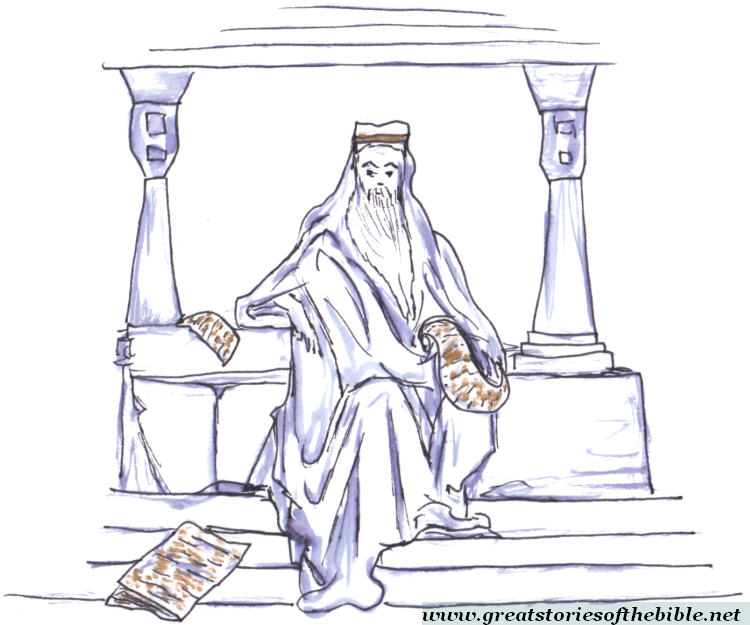Ecclesiastes
Everything is a fleeting blow
The Ecclesiastes is a «wise» man (see Eccl 12,9) disguised as King Solomon, the wise king for excellence and the king of excess: «So I was great, and increased more than all who were before me in Jerusalem» (Eccl 2,9). With this masquerade, he demonstrates the emptiness of the idea of man’s superiority over the world and the nonsense of a “gain-based” life. «I said in my heart, “As for the sons of men, God tests them, so that they may see that they themselves are like animals. For that which happens to the sons of men happens to animals. Even one thing happens to them. As the one dies, so the other dies. [...] All go to one place. All are from the dust, and all turn to dust again» (Eccl 3,18-20). Even the retribution theory is contested: «All this have I seen [...]: there is a righteous man who perishes in his righteousness, and there is a wicked man who lives long in his evildoing» (Eccl 7,15).

What does it leave to the man? He is certainly not a king, because he has to die (the Ecclesiastes does not believe in life after death), but he can count on a humble “compass” to guide his steps (see Vignolo). In the North (the cold pole, the orientation reference) the certainty that we all have to die: everything on earth is a “fleeting blow”; in the South (the warm pole) joy: in the book we find seven (the number of fulness) invites to “enjoy”, with the understanding that joy itself is not the result of human works, but a gift that God distributes to whom He wants and how He wants. In the East the fear of God, a deep respect that rests on “silence and listening” (see Mazzinghi) towards a God who is not understandable in His choices; in the West the industrious work till the sunset of life: «Whatever your hand finds to do, do it with your might; for there is no work, nor device, nor knowledge, nor wisdom, in Sheol, where you are going» (Eccl 9,10).
Here are the complete references (texts in Italian): Roberto Vignolo, La poetica ironica di Qohelet. Contributo allo sviluppo di un orientamento critico, «Teologia» 25 (2000), Maschera e sindrome regale: interpretazione ironico-psicoanalitica di Qoh 1,12-2,26, «Teologia» 26 (2001), La scrittura di Qohelet e la sua ricezione canonica alla luce della sua cornice editoriale (1,1-2.3; 12,8.9-14), «Teologia» 35 (2010); Luca Mazzinghi, “Ho cercato e ho esplorato”. Studi sul Qohelet, EDB, 2001.